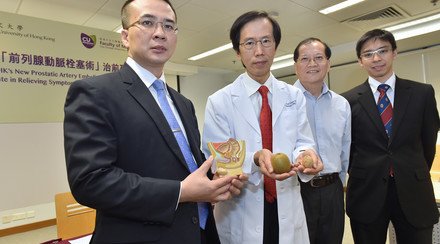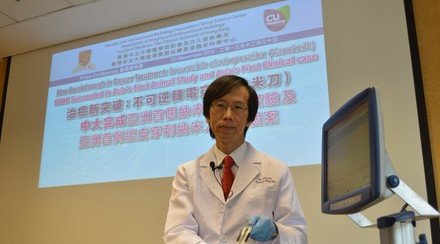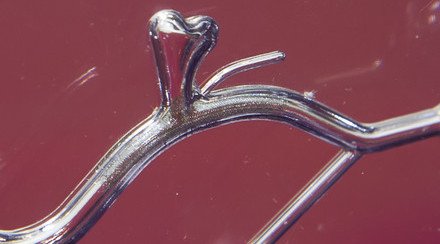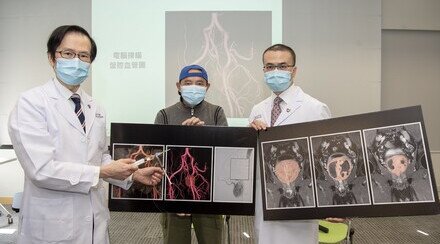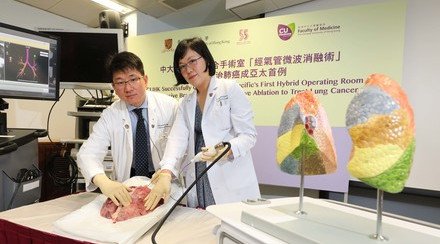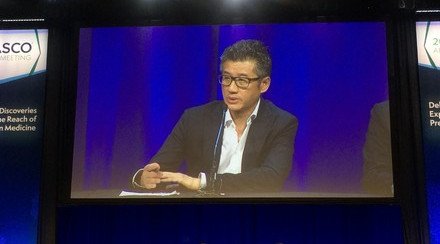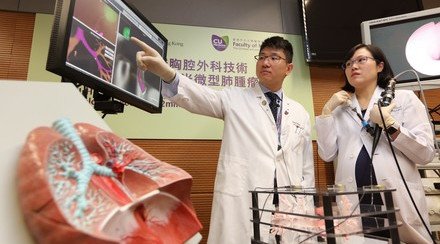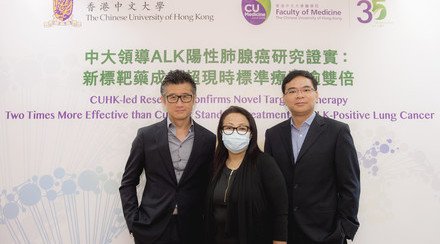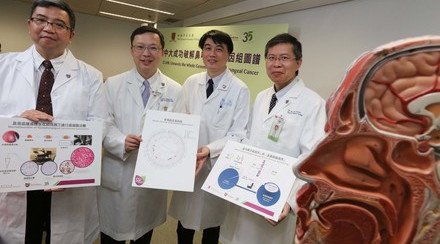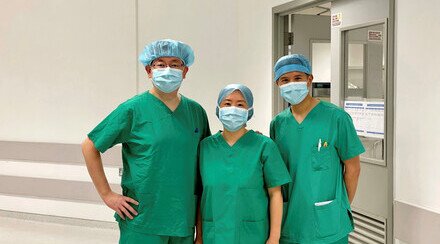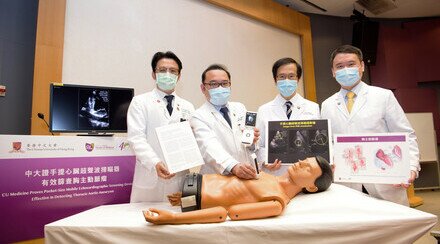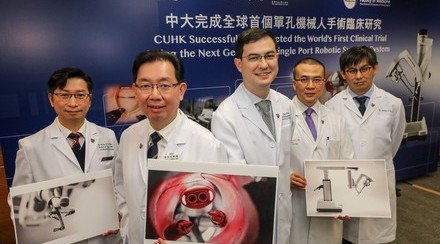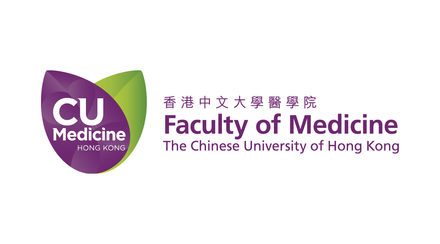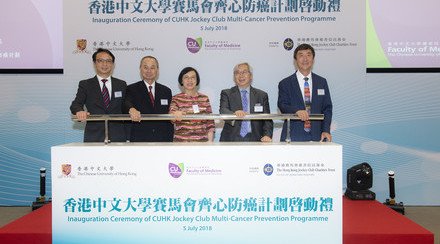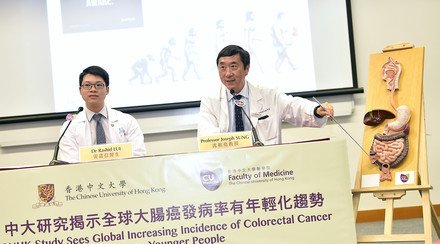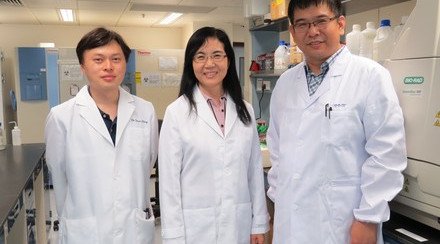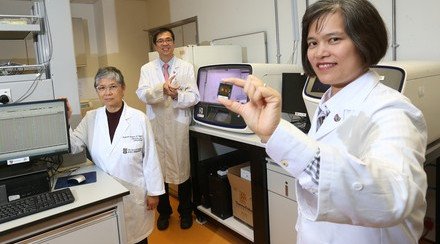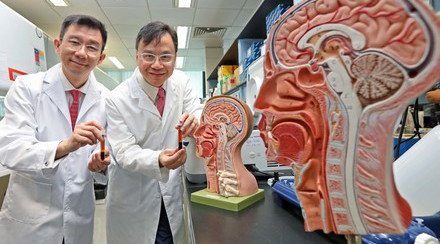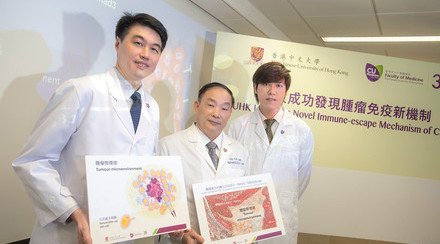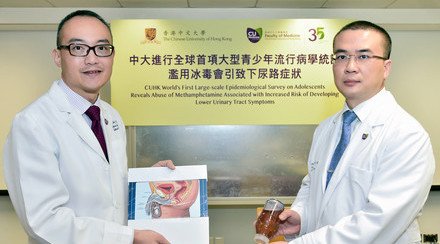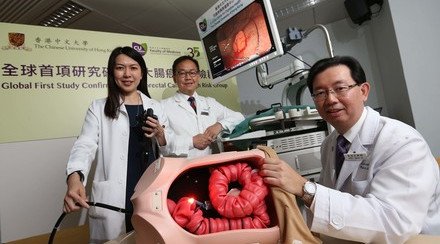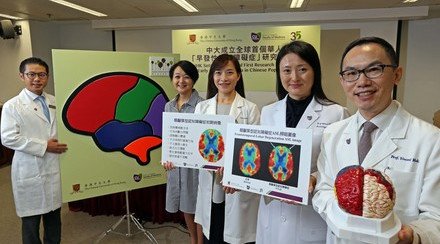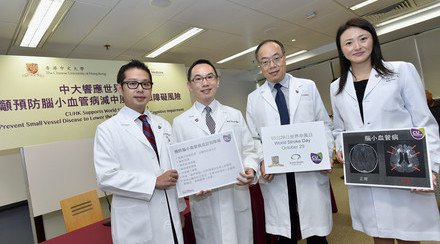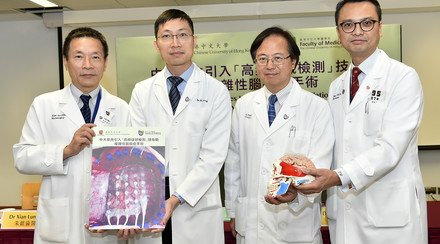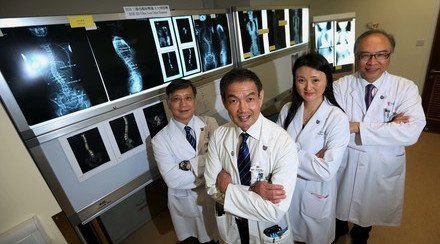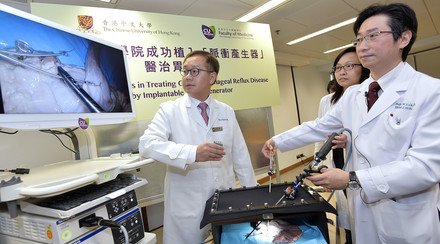CUHK Study Proves Ablative Chemoembolization Doubles the Progression-Free Survival for Liver Cancer Patients
A study conducted by a multidisciplinary team of the Faculty of Medicine at The Chinese University of Hong Kong (CUHK) has proved that a new transarterial treatment named “Ablative Chemoembolization” (ACE) could prolong the progression-free survival of liver cancer patients at the intermediate stage by twice the length of time, compared with “conventional transarterial chemoembolization” (cTACE). The new treatment is more effective in killing tumour cells of live cancer patients and hence some of them could receive hepatectomy after assessment of their liver conditions, with the aim of curing the disease. The study results have been published in the medical journal Radiology.
CUHK Medicine’s Multidisciplinary Team Provides Patient-Centred Treatment for Liver Cancer
Liver cancer is the fifth most common cancer and ranked third in terms of mortality in Hong Kong. According to the Hong Kong Cancer Registry of the Hospital Authority, there were around 1,800 new liver cancer cases locally in 2015 while the number of deaths were around 1,600.
As there is a serious impact from liver cancer both locally and internationally, the Faculty of Medicine at CUHK formed a multidisciplinary team to treat this common type of cancer. Experts from the Departments of Oncology, Surgery and Imaging and Interventional Radiology provide multidisciplinary consultation to patients and decide the suitable treatment option for them based on their conditions and surgical risk.
Prof. Winnie YEO, Professor of the Department of Clinical Oncology at the Faculty of Medicine at CUHK, stated, “Treatment options available to patients usually depend on their conditions when they are diagnosed with liver cancer. Size, position and metastasis of the tumour, as well as patients’ liver function, are the key factors in determining which treatment protocol is suitable for an individual patient. We hope that through the multidisciplinary consultation provided by specialists in these three Departments, procedures could be optimised and patients could receive comprehensive and patient-centred care as soon as possible.”
Hepatectomy not suitable for patients at intermediate stage and new treatment is needed
In general, liver cancer patients at early stage are treated with liver resection, local ablation or liver transplantation. These treatments are applicable to around 30% of all patients only. Patients at the intermediate stage or with high surgical risk are not suitable for liver resection or local ablation, but can only undergo transarterial treatment. For those at terminal stage, chemotherapy and targeted therapy are their only choices.
Dr. Kit Fai LEE, Clinical Associate Professor (honorary) of the Department of Surgery at the Faculty of Medicine at CUHK, explained, “Both surgery and local ablation are radical treatments. But if the tumour is too advanced, the tumour has metastasized or liver function has been severely impaired, these treatments will not be available and transarterial treatment will be the only option.”
Some patients could receive hepatectomy after the new transarterial treatment
cTACE is a common form of transarterial treatment for liver cancer patients at the intermediate stage. This conventional treatment produces therapeutic effects by causing vascular embolisation in the liver and delivering chemotherapy drugs to cancer cells through catheter. Although other forms of transarterial treatment have been introduced in recent years, such as drug-eluting beads (DEB-TACE) and selective internal radiation (SIRT), these treatments have not been shown to be more effective than cTACE.
Prof. Simon YU, Chairman of the Department of Imaging and Interventional Radiology at the Faculty of Medicine at CUHK, pointed out that the outcomes of the three mentioned transarterial treatments could be much improved and thus it is necessary to develop ACE, the new treatment with better outcomes, to help the liver cancer patients at the intermediate stage. Prof. YU said, “The new technique can significantly increase the concentration of chemotherapeutic drugs in liver cancer tissue. Combined with the effect of ethanol ablation and cutting off the blood supply of liver cancer tissue to cause ischemic necrosis, it can achieve multifold antitumour effect and improve the overall treatment outcome.”
The current study conducted by the multidisciplinary team proved that ACE could prolong the progression–free survival of patients while some of them could undergo hepatectomy after assessing their liver conditions.ƒ√
In the current study, 44 liver cancer patients were divided into 2 groups, in which one group underwent ACE (study group) while the other underwent cTACE (control group). Their treatment outcomes were analysed and tabulated as follows:
| Study group (22 patients) | Control group (22 patients) | |
| Proportion of patients with complete death of tumour cells after treatment | 100% | 45.5% |
| Proportion of patients who received hepatectomy after treatment | 32% | 14% |
| Progression-free survival (median) | 28 months | 10 months |
ACE treatment is recommended only to liver cancer patients at intermediate stage with five or fewer tumours. The current study is also a phase 1 study that focused on feasibility and treatment safety. Research team will conduct more in-depth studies on ACE.
A study conducted by a multidisciplinary team of the Faculty of Medicine at CUHK proved that a new transarterial treatment named “Ablative Chemoembolization” (ACE) could double the progression-free survival of liver cancer patients at the intermediate stage, compared with conventional treatment. ACE is more effective in killing tumour cells of liver cancer patients and some of them could receive hepatectomy, with the aim of curing the disease. From left: Prof. Winnie YEO, Professor of the Department of Clinical Oncology; Prof. Simon YU, Chairman of the Department of Imaging and Interventional Radiology; Dr. Kit Fai LEE, Clinical Associate Professor (honorary) of the Department of Surgery, from the Faculty of Medicine at CUHK.
Mr YEUNG (right) and Mr WONG (left) both received Ablative Chemoembolization four years ago to kill the tumours in their livers. Both of them are in good conditions.
Ablative Chemoembolization can deliver concentrated chemotherapeutic drugs to liver cancer tissue through catheter and other devices. Combined with the effect of ethanol ablation and cutting off the blood supply of liver cancer tissue to cause ischemic necrosis, it can achieve multifold antitumour effect and improve the overall treatment outcome.



